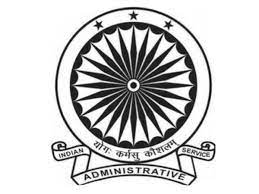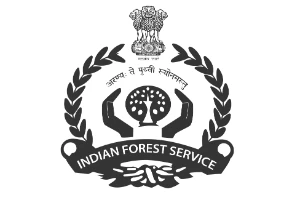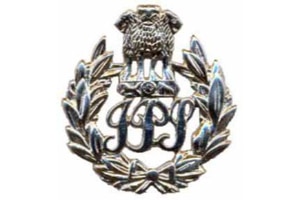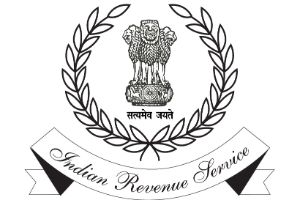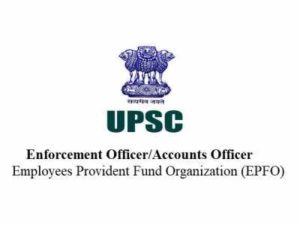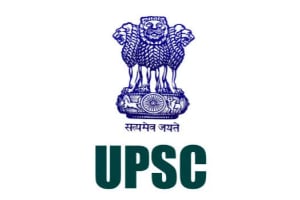UPSC exams
UPSC (Union Public Services Commission of India) organizes a national-level competitive exam to recruit eligible candidates in the higher civil services of India. Candidates must clear three stages in the UPSC exam, Preliminary Exam, Mains Exam and an Interview to get selected prestigious government job such as IAS or IPS.
Earn for every question answered
More about UPSC exams
Table of Contents
What is UPSC?
The Union Public Service Commission (UPSC) is the central recruiting agency for the government of India. Established in 1926, it is responsible for conducting the Civil Services Examination, which is the most prestigious and highly competitive exam in the country. The UPSC also conducts various other examinations such as the Indian Forest Service Examination, Indian Economic Service Examination, Indian Statistical Service Examination, and Combined Medical Services Examination, among others.
UPSC provides all the information on exams conducted, posts, exam patterns, eligibility, syllabus, results, and other relevant details through the notifications over their official website.
UPSC is a vital part of the Indian administrative system, providing the country with talented and dedicated civil servants who work tirelessly for the betterment of the nation and its people. The exam is a rigorous and challenging process that tests the candidates on various aspects of knowledge, skills, and personality, and only the most deserving and capable candidates are selected.
What is the full form of UPSC?
The full form of UPSC is Union Public Service Commission.
List of Exams under UPSC
- Civil Services Examination (CSE)
- Combined Geo-Scientist
- Engineering Services Examination (ESE)
- Combined Defence Services (CDS)
- Indian Forest Service (IFoS)
- Indian Foreign Service (IFS)
- National Defence Academy and Naval Academy Examination (NDA/NA)
- Central Armed Police Forces (CAPF)
- Combined Medical Services (CMS)
- UPSC Stenographer
Why UPSC Exams?
Union Public Service Commission conducts a highly professional selection process for high-calibre central, state and union territory government postings. The notifications and scheduled dates 2023 are declared well in advance on their official website. There is a separate event calendar for each year for above mentioned examinations separately for each year. UPSC conducts all India services such as IAS, IPS, IFS, and other examinations.
An in-depth description of each of these examinations is given below.
UPSC CSE (Civil Service Exam)
Union Public Service Commission Civil Service Exam is the most popular exams conducted by UPSC on a national level offline. Candidates appearing for UPSC CSE should have a minimum age of 21 years and a maximum of 32 years for the open and economically weaker section (EWS). SC/ST category candidate age relaxation is for 5 years i.e. 37 years, and for the OBC category, it is 3 years, i.e. 35 years.
UPSC CSE consists of three stages of examination:
- The Preliminary Examination: this exam is based on objective-type questions, and it is a screening test. Candidates who will be able to clear this exam will be qualified in the next stage.
- The Mains Examination: this exam is based on subjective type questions and comprises of English, Essay, General Studies, Optical subject paper.
- Interview/Personality Test: The interview or Personality Test is the last stage of the examination.
UPSC Prelims Exam
There are two papers for UPSC prelims exam – General Studies I and General Studies II. Both papers have a negative marking, and 1/3 of the marks will be deducted for every incorrect question. Both papers are taken on the same day, with an exam duration of 2 hours for each of the papers.
Both papers are of 200 marks each. General Studies I will have 100 questions, and General Studies II will have 80 questions. Candidates have to score cutoff marks to qualify for the prelims exam. The cut-off marks for paper I varied each year, whereas for 33% marks, cut-off marks for paper II.
UPSC Mains Exam
There are a total of 9 (nine) papers with 1 paper on an essay, 4 general studies papers, 2 optional papers, and 2 language papers for UPSC CSE Mains exam papers all of pen paper format totalling 1750 marks.
UPSC Mains exam has 9 (nine) papers – all of descriptive type.
UPSC CSE Mains Papers | Subjects | Marks | ||
Paper A | One of the Indian languages (qualifying) | 300 | ||
Paper B | English (Qualifying) | 300 | ||
Paper I | Essay | 250 | ||
Paper II | General Studies I | 250 | ||
Paper III | General Studies II | 250 | ||
Paper IV | General Studies III | 250 | ||
Paper V | General Studies IV | 250 | ||
Paper VI, VII | Two papers from the optional subject list | 250 | ||
| Total Marks | 1750 | ||
UPSC CSE – Interview
Qualified UPSC CSE Mains exam candidates are only allowed for personal interviews. The marks for the interview are 275 marks. Candidates are evaluated based on mains and interview scores. The total marks are (1750 + 275) = 2025. The selected candidates will receive a four-month foundation course at the Lal Bahadur Shastri National Academy of Administration (LBSNAA).
UPSC CSAT (Civil Services Aptitude Test)
Union Public Service Commission Civil Services Aptitude Test (UPSC CSAT), or General Studies Paper III, is conducted by UPSC to check/test candidates’ analytical skills. There will be 80 questions of multiple choice type objective questions and is an offline exam for 2 hours. There will be a negative marking for the exam, with 1/3 of the maximum marks deducted for every incorrect answer. The paper will have subjects like comprehension, logical reasoning, numeracy skills and data interpretation.
Eligibility criteria:
- The applicant must be an Indian citizen or a citizen of Nepal/ Bhutan/ Tibetan refugees who were in India before 1st January 1962.
- The applicant must attain an age of at least 21 years, and the maximum age limit varies as per the position applied for.
- Candidates must hold a graduation degree from a recognized college or university. Students who are in the final year of their graduation are also eligible to apply.
- A general candidate aspirant is allowed to attempt the exam not more than 6 times.
IAS Exam (Indian Administrative Services Exam)
UPSC IAS is an Indian Administrative Services examination that has three stages for recruitment – IAS Prelims, IAS Mains and IAS Interview. IAS prelims will have Paper I (General Studies) will have 100 questions, Paper II (CSAT) will have 80 questions; both of these papers are of 200 marks and to be attempted within 2 hours. There will be a negative marking with 1/3 of the marks deducted for each incorrect answer.
Eligibility Criteria for IAS Exam include educational qualification, age limit and others. Candidates must know about the eligibility criteria before applying for the examination. He/ She should be a citizen of India. The UPSC sets the age limit for the IAS Exam. Candidates’ age must be 21 years and less than 32 years. Candidates who are graduated can apply for the exam.
Positions filled – Following are the positions offered to an IAS Officer in India:
- Trainee Officer at LBSNAA
- Sub-District Magistrate
- Divisional Commissioner
- Cabinet Secretary of India
- Chief Secretary
- Divisional Commissioner
- Joint Secretary/ Undersecretary
An IAS Officer is entitled to a monthly salary of INR 93,650. Apart from the in-hand salary, they also receive various perks and benefits from the government.
IPS Exam (Indian Police Services Exam)
UPSC conducts exams for Indian Police Service (IPS) vacancies. There is a priority given to physical requirements for getting selected as IPS officer.
Physical requirements –
For Male –
| Male | Height | 165 cm – open category |
| 160 cm – for ST category | ||
| Chest | Minimum – 84 cm | |
| Expansion – 5 cm | ||
| Eyesight | 6/6 or 6/9 distant vision for good eye |
For Female –
| Female | Chest | Minimum – 79 cm |
| Expansion – 5 cm | ||
| Eyesight | 6/12 or 6/9 for worst eye | |
| Near Vision J1 / J2 worst eye | ||
| Height | 150 cm – open category | |
| 145 cm – for ST category |
The physical requirement of a candidate is tested after a personal interview.
Candidates applying for the IPS exam must be graduated according to the board. Establishing IPS qualification has a main motive as the threshold is to ensure that the people should be educated and knowledgeable for the position they are applying for. The UPSC demands that the application should come under age 21 to 32.
Positions filled – Following are the positions to be filled when recruiting an IPS Officer:
- Deputy Superintendent Police (DSP)
- Superintendent Police (SP)
- Additional Superintendent Police (ASP)
The starting salary is Rs. 56100, up to Rs. 225000 per month.
IFS Exam (Indian Foreign Services Exam)
Along with IAS, IPS and IRS, the IFS (Indian Foreign Service) is one of the most popular services in the UPSC exam. An IFS officer represents the nation and handles matters about India’s external relations, including trade, diplomacy and cultural ties. Every year the UPSC conducts the Civil Service Examination, also known as the Indian Foreign Service exam. According to their rank, candidates who pass the civil service exam are admitted to the Indian Foreign Service.
Indian Foreign Service exam is conducted in three phases: Prelims, Mains and personal interview.
The complete eligibility criteria are given below:
- Age Limit: Minimum age of the candidates to sit in the Indian Foreign Service exam is 21 years. As for the general category, the upper age limit is 32 years. A relaxation of 3 years is mentioned for OBC candidates by making the maximum age of 35 years.
- Educational Qualification: No minimum percentage is required to apply for the Indian Foreign Service exam. Those candidates who are graduated from a recognized institute or college can apply for the Indian Foreign Service exam, and also those candidates who are in the final year of their graduation are eligible to apply.
- Nationality: He/ She should be a citizen of India and a subject of Bhutan or Nepal.
Positions filled – Following are the positions filled by IFS Officers:
- Under Secretary
- Deputy Secretary
- Counsellor Director
- Additional Secretary
- Joint Secretary
- Secretary
The IFS Officer gets a monthly salary of Rs. 120000. The payout varies based on experience and the role chosen.
UPSC IFoS (Indian Forest Services Exam)
UPSC conducts IFoS exam to select officers for Indian forest services.
This exam is divided into three stages:
- Preliminary Examination
- Mains examination
- Interview
Candidates appearing IFoS examination should be of 21 years of age and should not be more than 32 years.
The Union Public Service Commission has given the eligibility criteria for the UPSC IFOS civil examination. He/ She should be a citizen of India and the subject of Nepal, Bhutan. The candidates should have their bachelor’s degree with a specialization in any one f the subjects like Animal Husbandry, Botany, Geology, Mathematics, Physics and many more. Candidates who have bachelor’s certificate in Agriculture or Engineering or Forestry are also eligible for the UPSC IFOS exam.
Positions filled – Following are the positions that candidates get:
- Assistant Inspector General of Forests
- Additional Director General of Forests
- Deputy Inspector General of Forests
- Director-General of Forests
- Inspector General of Forests
The UPSC IFOS Officer is eligible to receive a salary of Rs. 56100 to Rs. 224100. The highest salary structure demands maximum experience and knowledge.
UPSC IRS (Indian Revenue Services Exam)
UPSC conducts exams to recruit group A candidates for the Indian revenue services of the government of India. Indian revenue services have two divisions, IRS (Income Tax) and IRS (Customs and Central Excise).
In IRS there is no physical requirement needed. As eligibility criteria has been released in the UPSC CSE notification. The complete requirement of the eligibility criteria is given below:
- Age Limit: The minimum age to sit in the exam is 21 years. In case of general category candidates of upper UPSC age limit is 32 years.
- Educational Qualification: those candidates can also apply who are in the last stage of graduation. They should have their bachelor’s degree from a recognized university or board.
- Nationality: He/ She should be the citizen of India and a subject of Nepal and Bhutan.
This exam is conducted into three stages mainly:
- Prelims Exam
- Mains Exam
- Interview
IES Exam (Indian Engineering Services Exam)
UPSC conducts the IES exam once a year to recruit engineers in 4 domains such as Mechanical, Civil, Electrical and Electronics and Telecommunication for the Techno managerial posts.
The selection process consists of two stages, namely:
- Prelims and Mains Exam: A candidates have to pass both exam if he/ she wants to get selected. The preliminary Exam has two components General Ability and Engineering Subjects. The level of paper in the Preliminary exam will be that of an Engineering/ Science Graduate. Candidates who pass both papers 1 and 2 of the Preliminary Examination will be eligible to give the Mains Examinations.
- Personal Interview: UPSC conducts personal interviews for all the candidates who clear the Mains. Qualification marks are required in both the Prelims and Mains exams by the candidates. The Personality Interview Exam has 200 points. After passing the personality exam, his or her documents and eligibility will be thoroughly scrutinized.
Positions filled – Following are the organizations where an IES Officer is employed:
- Indian Telecommunication Service
- Border Roads Engineering Service
- Central Power Engineering Service
- Central Electrical and Mechanical Service
- Indian Supply Service
- Indian Ordnance Factory
- Defense Service Engineering Corps
- Indian Navy Armaments Service
- Central Engineering Service for Roads
- Geological Survey of India
- Central Water Engineering
- Indian Army Engineering Service
- Indian Railway Service
It depends on their level, grade, and number of years of service for identifying the an IES’s monthly pay scale. However, the monthly income for an IES officer, which includes base pay, dearness allowance, and other allowances, ranges from Rs. 60,000 to Rs. 2,00,000.
UPSC CAPF (Central Armed Police Forces Exam)
CAPF exam is conducted for recruitment in police force such as Central Reserve Police Force, Border Security Force, Central Industrial Security Force. As the candidates have to pass the Physical and Written examination, which is followed by the Interview or personality test, to get admitted in the training academics of the police force.
The examination of UPSC CAPF is conducted in offline mode and the time provided to candidates to complete the examination is 5 hours. This exam contains two parts mainly Part 1 and Part 2. The first paper is based on objective and it is available in both English and Hindi Languages. The second paper is a descriptive type exam and it is acceptable only in English Language and a total of 450 questions will be there in the exam.
Recruitment of Central Armed Police Forces has following three stages of selection
- Written exam
- Physical and Medical tests
- Personal Interview
The written exam for Central Armed police force exam will have following pattern, there will be two papers as described below
Paper 1 (MCQ) | General Knowledge and Aptitude | 250 marks | 2 hours |
Paper 2 (Descriptive)
| Comprehension, General study topics, and essays | 200 marks | 3 hours |
For Central Armed Police Forces selection, selected candidates need to have considerable physical fitness and energy. Physical examination includes competitions like the long jump, shot put and running races to check the physical fitness of the candidate. The final stage is a personal interview with a candidate and accounts for 150 marks. Candidates are finally selected based on their performance in all these phases.
UPSC CMS (Combined Medical Services Exam)
UPSC conducts the Combined Medical Services exam to recruit the candidates educated in medical profession for posts like Assistant Medical officer, divisional medical officer or General Duty officers in Government run hospitals and health departments across various states of India.
The UPSC CMS exam has two stages, namely:
- Computer-Based Online Test
- Interview
First is the written exam; passing it qualifies the candidates to attend the personality test. The written exam has two papers which are paper 1 and paper 2, and each paper carries 250 marks. The time given is 2 hours for each, and the test is a multiple-choice question with the booklet set in the English language. The second stage is the Interview part. And, to clear the exam, candidates must study through the relevant notes from the exam point of view. For the candidates, the UPSC CMS notes not only cover the detailed syllabus but is also a good source of practice.
Phases of the selection process | 2 phases (Written test + Interview) |
Written exam (Paper 1 and 2) | 250 +250 = 500 marks |
Personal Interview | 100 marks |
Application fee | INR 200 (Reserved category and women candidates are exempted) |
Eligibility | MBBS graduate The maximum age limit is 32 The maximum age limit is 35 for Junior scale posts |
Positions filled –
- Assistant Divisional Medical Officer in the Railways
- Junior Scale Post in the Central Health Service
- Assistant Medical Officer in the Indian Ordnance Factories’ Health Service
- General Duty Medical Officer in the New Delhi Municipal Council
- GDMO Group II in East, North, and South Delhi Municipal Corporation
The UPSC CMS passing candidates can entitle to receive a salary of Rs. 1,00,652 per month after the necessary deductions.
UPSC SCRA (Special Class Railway Apprentice exam)
Special Class Railway Apprentice exam conducted by UPSC to train candidates for the undergraduate program in mechanical engineering at the Indian Railway Institute of Mechanical and Electrical Engineering at Jamalpur. Candidates who wish to appear in SCRA exam should have passed first year of B.Sc. degree in Physics, Chemistry or Mathematics and must be of age 17 years and not more than 21 years on 1st of August of the year candidate appears on the exam.
The exam pattern is as follows.
Paper I | General Ability Test (English, General Knowledge and Psychological Test) | 200 |
Paper II | Physical Sciences (Physics and Chemistry) | 200 |
Paper III | Mathematics | 200 |
| Total Marks | 600 |
UPSC Combined Geo-Scientist
UPSC conducts a Combined Geo-Scientist exam to select suitable candidates for the Geologist, Geophysicist and Chemist Group ‘A’ post in GSI, Central Ground Water Board and Scientist ‘B’ and Junior Hydro-geologist.
Candidates with a degree in M.Sc. in Physics or Applied Physics, Geophysics or Integrated M.Sc. in Exploration Geophysics or Applied Geophysics or M.Sc. can only apply for the Combined Geo-Scientist exam.
The exam has three stages for selecting suitable candidates for the posts mentioned above. Preliminary, Mains and Personality Test. Candidates should apply online for this exam; the preliminary test is an objective exam, the Main exam is a descriptive type exam.
Positions filled – Following positions are offered to the candidates:
- Senior Geologist
- Senior Geophysicist
- Additional Director
- Senior Hydrogeologist
- Chief Geologist
- Senior Mining Geologist
- Deputy Director
- Director
A candidate who is hired as a geoscientist would receive an in-hand UPSC combined salary of about INR 50,000. Basic pay, grade pay, and various allowances are added together to provide the in-hand salary.
UPSC Steno
The Union Public Service Commission conducts a Stenographer exam as a recruitment process to select group B stenographers and section officers. UPSC Steno exam has two stages of the recruitment process – written exam and evaluation of services. The candidate should be an Indian citizen to apply for the post of stenographer.
The UPSC Steno exam has only three papers. The exam will have both subjective and objective type questions. Written test is an objective type exam with negative marking of 0.33 marks deducted for every incorrect answer. The test for writing in Hindi and English with speed of 100 words per minute for 10 minutes, 40 minutes and 55 minutes respectively.
Selection Process:
- For the UPSC Steno selection process is based on the offline written exam and evaluation procedure of the service.
- Those who have secured qualified marks in the written exam UPSC will call those eligible aspirants for evaluation.
- After securing minimum qualification marks aspirants are called for the assessment.
- After completing the evaluation process, the selected candidates will get the recruitment offer letter from UPSC.
Positions filled – Below is the list of positions in correspondence with their organization where UPSC Stenographer is assigned:
- Grade ‘B’ of the Railway Board Secretariat Stenographers Service
- Section Officers (SO) Grade of the Central Secretariat Service
- SO Integrated Grade 2nd & 3rd) of the General Cadre of the Indian Foreign Service, Branch ‘B’
- Private Secretary Grade of the Central Secretariat Stenographers’ Service
- SO’s Grade of the Railway Board Secretariat Service
- Grade I of the Stenographers’ Cadre of the Indian Foreign Service, Branch B
- Section Officers’ Grade of the Intelligence Bureau.
- Grade ‘A’ & ‘B’ merged of the Armed Forces Headquarters Stenographers’ Service
- Private Secretary Grade in Employees’ State Insurance Corporation
UPSC Stenographer is entitled to receive a salary of Rs. 9300 to Rs. 34800 and a grade pay of Rs. 4600.
UPSC EPFO
UPSC organizes the Employee Provident Funds of India exam to recruit enforcement officers or accounts managers in employee provident fund organizations.
EPFO exam will have 120 multiple-choice type of questions for the test, and the medium of the exam can be English and Hindi. There will be a negative markings for each incorrect answer and 1/3 of the marks will be deducted.
The syllabus of UPSC EPFO exam includes subjects like General Mental Ability & Quantitative Aptitude, Social Security in India, Current Affairs, Industrial Relations & Labour Laws, Indian Polity & Economy, General Accounting Principles, General English, Indian Freedom Struggle and Current Affairs.
Positions filled – Below are the posts that are offered to the candidates after clearing the exam:
- Enforcement Officer
- Accounts Officer
- Assistant Provident Fund Commissioner
- Additional Central Provident Fund Commissioner
- Regional Provident Fund Commissioner – I
- Regional Provident Fund Commissioner – II
According to the 7th CPC, Level 8 of the pay matrix corresponds to the UPSC EPFO Salary. The remuneration thus ranges between Rs. 47,600 and Rs. 58,600.
UPSC Exam Preparation Tips
One of the most prestigious exams in India is the UPSC Civil Services Exam. Every year, thousands of individuals across the nation attempt it. However, only a very small percentage of them successfully achieve their goals. The exam is difficult not simply because of how long the syllabus is, but also because of how unpredictable it is.
Students who want to give the exam but are finding it difficult how to start their preparation must follow these preparation tips to ace the exam.
- Be sure of yourself -Candidates must be sure of going for the UPSC exam. They should prepare for the journey before figuring out how to begin studying for the UPSC at home. Establish priorities and manage your time well. Prepare yourself physically and mentally for the test before you begin your study.
- Draft a timetable – It is essential to have a structured daily schedule if you want to become an IAS officer. Before your preparation, you should establish a convenient timeline and follow it. Your preparation will go more smoothly and easily if you create a schedule. With deadlines, you would do better work and finish the syllabus more quickly.
- Go through the latest syllabus – The first thing to do before reading the books is to familiarize yourself with the syllabus. The Civil Services Preliminary and Main Exam Syllabus has been elaborately supplied by the UPSC. Candidates should be aware of and adhere to the UPSC civil service exam syllabus. Knowing the syllabus will assist you in setting subject priorities, selecting pertinent study materials, and other tasks.
- Read the newspaper daily – The most important aspect of the exam is having vast knowledge about the current happenings. Candidates must read a newspaper daily to boost their knowledge. The questions of the civil service exam are related to current events either directly or indirectly.
- Choose the optional subjects – The optional subject in UPSC carries a total of 500 marks. The candidates should choose their optional subjects correctly. The factors that can be taken into consideration while choosing are interest that candidate posses in the subject, availability of coaching and study material, familiarity with the subject.
- Preparing notes – Making brief notes while preparing for the UPSC is beneficial. Given the size of the UPSC syllabus, it is helpful to keep track of the material covered and acts as a reminder for revision. For each subject, you can keep a separate file or notebook. This is very useful for adding news on current affairs to a certain topic.
- Practice writing – UPSC exam is conducted to test the analytical, critical, and communicative abilities of the candidates. It requires conceptual clarity in your thinking and immaculate organization of your opinions, assumptions, and ideas. The response booklet’s time and space restrictions should also be taken into consideration. As a result, applicants must respond to queries succinctly and effectively.
- Solve question papers – Solving previous year question papers helps in understanding the UPSC question paper pattern, types of question and difficulty level of the exam. The past trends can be judged and the future trends can be ascertained. It will also assist you in comprehending the key components of a given subject.
- Go for mock tests – Self assessment at regular intervals is necessary when preparing for UPSC. It can aid prospective civil service employees in recognizing their errors, learning from them, and pinpointing their strengths and shortcomings. Joining a mock exam series is strongly advised, especially if you are studying at home. This will aid in your self-evaluation and future assistance.
- Revise daily – When you are taking a test as difficult as the UPSC exam, revision is a very important aspect. Because the UPSC syllabus is extensive and broad, covering a wide range of disciplines, it is normal to forget stuff you have previously learned. A timely correction is necessary to prevent this.
Reading magazines of publications like Yojana, Kurukshetra, Economic & Political Weekly, etc. is crucial. They provide crucial details on subjects like politics, agriculture, administration, the economy, etc. The most crucial part of the entire UPSC process is to maintain a positive attitude. It might sometimes feel somewhat overwhelming, and you may experience depression. Get rid of any negative thoughts and continue working.
UPSC Exam Books
UPSC is considered to be one of the toughest exams of all exams in India. Students aspiring to give the UPSC exam must not restrict their knowledge until the syllabus is prescribed by UPSC. The aspirants must have a wide idea of the national and international happenings in recent days. To gain such knowledge, candidates must rely on quality sources. Aspirants will learn enough about the topics included in the UPSC syllabus for the Exam by reading these essential books.
We have included a list of 10 books that we believe are essential when reading for the UPSC Mains and Prelims exams. These UPSC books should be your initial friends if you plan to attempt your UPSC preparation seriously.
Sl No. | Name of the Book | Author |
1 | India After Gandhi | Ramachandra Guha |
2 | NCERT books: The Complete Package | – |
3 | Indian Polity | M. Laxmikanth |
4 | Introduction to the Constitution of India | D D Basu |
5 | Indian Economy | Ramesh Singh |
6 | 2nd ARC Reports | – |
7 | The Wonder That Was India | AL Basham |
8 | India’s Struggle for Independence | Bipan Chandra |
9 | IGNOU Material on Disaster Management | I C Dhingra & Uma Kapila |
10 | Indian Geography | Majid Hussain |
The above-mentioned books are recommended by candidates who have already cleared the exam. These books contain the explanation of the matters in a more simplified manner. Students who are planning to attempt the exam must start with these books and qualify for their exam.
FAQ's
There are mainly 12 exams primarily conducted by UPSC. the list is as given below
- Combined Geo-Scientist
- Engineering Services
- Combined Defence Services
- Indian Forest Service
- Civil Services
- Indian Statistical Service
- Indian Economic Service
- National Defence Academy and Naval Academy Examination
- Central Armed Police Forces
- Combined Medical Services
- CISF AC(EXE) LDCE
- SO-Steno (GD-B-GD-I) LDCE
10 exams conducted by UPSC in addition to Indian Administrative, Indian Police and Indian Foreign Services (IAS, IPS and IFS) are as listed below
- Engineering Services
- Combined Defence Services
- Combined Geo-Scientist
- Combined Medical Services
- Indian Forest Service
- Civil Services
- Indian Statistical Service
- Indian Economic Service
- National Defence Academy and Naval Academy Examination
- Central Armed Police Forces
A candidate applying for UPSC exam should be a citizen of India and a graduate from recognized university and should be minimum of 21 years of age and not beyond 32 years of age. for armed forces, defence there is need for physical requirements as well. for geo-scientist, engineering, medical services a candidate should have bachelor’s degree or masters degree in geo-physics, engineering or medical sciences as per required.
With the qualifying percentage of 0.01 UPSC exams are the toughest exams to qualify in India. However it is not impossible to qualify if candidate sincerely study on regular basis and has good strategy for the learning.
UPSC usually covers topics related to current affairs during the interview, where as in case of Indian Administrative services exam topics like public administration and geography are best subjects.
Mathematics is a compulsory subject while appearing in UPSC exam and you should prepare for the mathematics to appear in prelims exam.
Candidates should prepare for UPSC exam in following manner
- Candidates should understand the syllabus for the exam and distribution of marks per subject
- Check previous exam papers and questions asked in these papers, Read recommended books for the subject
- Make notes of the current affairs topics, learn from various sources of learning for difficult subject like videos, note and problem solving
- Refer practice session for mock tests, understand the exam pattern, try to solve the papers yourself
The recommended books with author and publication are always announced along with the syllabus during the exam notification. It is advisable to make notes while reading from one of these books for the subject and make sure related information are referred from internet and publications.
The state of Uttar Pradesh in India has most of UPSC toppers
UPSC attracts a large number of applicants because of the salary and benefits given by UPSC to the exam passing candidates. The initial monthly salary for the Officer is Rs. 56100 and it can rise up to Rs. 250000 per month. The officers are also entitled to receive various allowance and benefits– Travel allowances, dearness allowances, and House rent allowances.
Yes, passing the UPSC exam without coaching is doable. In the past, several individuals who attempted the UPSC exam without coaching were successful in passing the exam. The candidates who do not want to go for any coaching must refer to quality study materials. They can get in touch with the candidates who have already passed the exam to get the idea of the varies strategies they can be applied while preparation. Candidates who are serious about their goal and have made a required schedule for that can easily crack the exam without any coaching.
There are a total of 25 subjects in UPSC exam. Compulsory subjects for UPSC prelims include, Indian Politics and Governance, General Science, History, Geography, and Economic and Social Development. The compulsory subjects for the mains exam include, Indian and World History and Geography, Economics along with Budget and Survey, Indian polity and social justice. Among the 25 subjects, 23 subjects are the optional subjects from which one can choose in addition to the main subjects.
